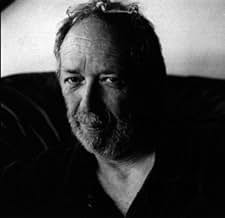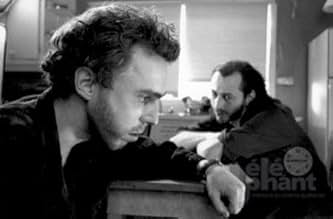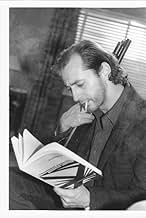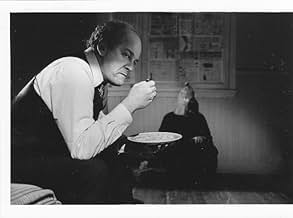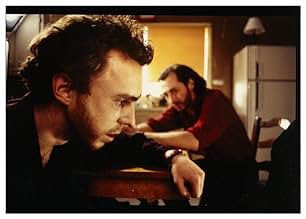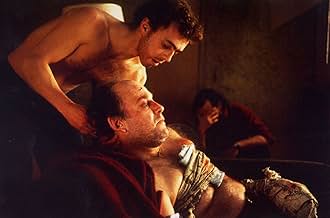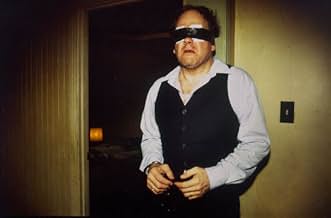Aggiungi una trama nella tua linguaA dramatization of the infamous Canadian terrorist abduction & murder of a government minister by a cell of The Quebec Liberation Front.A dramatization of the infamous Canadian terrorist abduction & murder of a government minister by a cell of The Quebec Liberation Front.A dramatization of the infamous Canadian terrorist abduction & murder of a government minister by a cell of The Quebec Liberation Front.
- Regia
- Sceneggiatura
- Star
Hugolin Chevrette-Landesque
- Neveu
- (as Hugo C. Landesque)
Recensioni in evidenza
Again, Falardeau has put his camera where it hurts, where a camera should be ! A lot where fearing a radical, simplistic view of the events of October 1970, but were surprised to witness that the director's take on the FLQ's actions were concentrated mostly on the human aspect. These men were not brainwashed activists or militarily trained supermen, they were Quebec workers, french speaking working class citizens who got fed up with oppression and decided to wake up a nation. But by doing so, one soon realizes that he has to be willing to give up everything for the cause. These guys were not super heroes, they were not mindless protesters; they doubted, they feared, they hoped, they laughed, they cried, they hurt each other, they despaired...they were and are human beings. Real human beings. And that's what interested Falardeau. Ordinary people taking extraordinary measures to shake a system that doesn't want to listen to them. But they found themselves in a dead end once the government decide to send in the army instead of negotiating. If they would have let the hostage go, they're whole operation would have seemed as a farce and the demands of Quebec would once again not be taken seriously. But as they say in the film, they were not murderers. They were faced with a dilemma: go all the way or be forever sheep in a country that does not even recognize the existence of their nation. You can feel all the pressure of that dilemma in "Octobre". And to me, that is the main reason for the film's being. It is not simplistic. It does not evacuate the moral issues of the actions taken by the protagonist. It shows the other side of a revolution, the human difficulties that go with it. And that is no minor task. For once, in Quebec, we were told a story from a non-institutional point of view. And only this, to start with, makes "Octobre" essential viewing.
As a movie, Octobre is not very interesting, except maybe for Quebeckers that might want to renew with a part of their past, in a fictionalized way.
As a documentary, Octobre is totally wrong, showing us just one biased side of the story, failing to describe the reality.
The felquists are well played by the lead actors but the story is not very inspiring. After kidnaping the minister of Labor, Pierre Laporte, they wait for the government to negotiate with them. They want the independence of Québec.
Falardeau, himself in favor of independence from Canada, presents the felquists as heros, good guys that needed to do what they've done, for the «cause». While in fact, these guys are just fanatics that read a little too much books about the Revolution. They had the arrogance to think that they were talking for everybody else, that Quebeckers were a 100% behind them.
So it goes on! They kidnaped the minister but they treat him like a friend. Maybe a little bit more water, monsieur le ministre! We're sorry we have to do that! They even give a good tip to the delivery guy! I think it's a manipulative way for Falardeau to present the felquists as martyrs of the independence. And one of the felquists to say: «If we didn't had heart, we wouldn't be here today»...
As all terrorists, the felquists in this movie had an utopian idea of the country where they wanted to live. They were sure about one thing: they were right. And Falardeau, by making this movie, wants us to have sympathy for those guys. Well, sorry Mr Falardeau, but I think your movie may appeals to some independists from Québec, but no more. Cause, once again, as a movie, it's not that good, and as a documentary, it's just propaganda.
Because of the acting, I gave this movie 73 out of 100. That's good for **½ on a **** stars rating system.
Seen at home in Welland, on January 29th, 2002.
As a documentary, Octobre is totally wrong, showing us just one biased side of the story, failing to describe the reality.
The felquists are well played by the lead actors but the story is not very inspiring. After kidnaping the minister of Labor, Pierre Laporte, they wait for the government to negotiate with them. They want the independence of Québec.
Falardeau, himself in favor of independence from Canada, presents the felquists as heros, good guys that needed to do what they've done, for the «cause». While in fact, these guys are just fanatics that read a little too much books about the Revolution. They had the arrogance to think that they were talking for everybody else, that Quebeckers were a 100% behind them.
So it goes on! They kidnaped the minister but they treat him like a friend. Maybe a little bit more water, monsieur le ministre! We're sorry we have to do that! They even give a good tip to the delivery guy! I think it's a manipulative way for Falardeau to present the felquists as martyrs of the independence. And one of the felquists to say: «If we didn't had heart, we wouldn't be here today»...
As all terrorists, the felquists in this movie had an utopian idea of the country where they wanted to live. They were sure about one thing: they were right. And Falardeau, by making this movie, wants us to have sympathy for those guys. Well, sorry Mr Falardeau, but I think your movie may appeals to some independists from Québec, but no more. Cause, once again, as a movie, it's not that good, and as a documentary, it's just propaganda.
Because of the acting, I gave this movie 73 out of 100. That's good for **½ on a **** stars rating system.
Seen at home in Welland, on January 29th, 2002.
In regards to previous comments, a few things need to be said. First, this movie is not a documentary and it doesn't have the pretension to be one. So I think you need to keep this in mind, and not expect to hear experts come to the camera and give «neutral» and «objective» clarification.
Second, the movie is based on a book written by one of the felquiste. So it would be incorrect to jump to the other extreme and say that the story is «fictionalized». The book, as well as the movie, is written in plain honesty, many years after the events that took place in 1970.
Keeping in mind that the movie depicts the events as seen through the eyes of one of the perpertrators, the movie is extremely effective in showing how Ideals can grasp people, how revolutions (often failed) occur, what it means to believe in something with all your heart. It also shows, and you must be blind not to see this, how events like these might as well take a proportion that was not intended, and that playing with the lives of individuals is not as easy as it might seem in the first place.
Octobre shows the real meaning of politics, of a political event, of a revolution. It shows that political events are never totally black or white.
You might say that because Falardeau is a separatist he doesn't give a neutral or objective point of view, and thus, the movie is biased. I'll be ready to accept this critique when somebody shows me a way to depict such an event in a neutral and objective way. A lot of people won't be able to appreciate Octobre for two possible reasons : a) they lack the necessary background to understand the story, or b) they view the movie as another absurd propaganda from separatists.
Other than that, Falardeau renders very well the tension that builds inside the small house where five people are stuck, waiting for the government to negotiate. It is a very emotional movie ; I saw the movie in Montréal when it came out. There weren't many people in the movie theatre. When the movie ended, I stood up to leave and noticed two older people, a man and a woman. Both we're still looking at the blank screen, silent. I thought that they were probably involved in the FLQ, that they were probably arrested also. Watching this movie must have been very difficult for them, at least this is what their eyes told me.
Second, the movie is based on a book written by one of the felquiste. So it would be incorrect to jump to the other extreme and say that the story is «fictionalized». The book, as well as the movie, is written in plain honesty, many years after the events that took place in 1970.
Keeping in mind that the movie depicts the events as seen through the eyes of one of the perpertrators, the movie is extremely effective in showing how Ideals can grasp people, how revolutions (often failed) occur, what it means to believe in something with all your heart. It also shows, and you must be blind not to see this, how events like these might as well take a proportion that was not intended, and that playing with the lives of individuals is not as easy as it might seem in the first place.
Octobre shows the real meaning of politics, of a political event, of a revolution. It shows that political events are never totally black or white.
You might say that because Falardeau is a separatist he doesn't give a neutral or objective point of view, and thus, the movie is biased. I'll be ready to accept this critique when somebody shows me a way to depict such an event in a neutral and objective way. A lot of people won't be able to appreciate Octobre for two possible reasons : a) they lack the necessary background to understand the story, or b) they view the movie as another absurd propaganda from separatists.
Other than that, Falardeau renders very well the tension that builds inside the small house where five people are stuck, waiting for the government to negotiate. It is a very emotional movie ; I saw the movie in Montréal when it came out. There weren't many people in the movie theatre. When the movie ended, I stood up to leave and noticed two older people, a man and a woman. Both we're still looking at the blank screen, silent. I thought that they were probably involved in the FLQ, that they were probably arrested also. Watching this movie must have been very difficult for them, at least this is what their eyes told me.
If I had to use only one word to describe this movie, I'd say "strong". This movie is intense, thought-provoking and at the same time it is very smart.
I think it's pathetic that people said it was either white or black just because it was one of Falardeau's work (and that he's doing "propaganda" for the separatists). That is like saying soveregnists are too dumb to understand what they are fighting for, but the true stupid ones are those who didn't see the shades of grey in this movie. This film was not intended to show "bad guys" and "good guys", it was a movie about five men living hell in a small house for an entire week. Quebecers know their story, so the movie does not tell all the events that happened in Quebec during that time, it tells about something nobody is sure about, because what happened in this little house is only known by the five guys that were there. The movie is based on a book written by one of the guy, 12 years later, but Falardeau also read -many- documents about the events to be sure he was sticking to the facts when it came to the political/historical elements [read his book "La liberté n'est pas une marque de yogourt", for more info].
The "felquistes" have a heart in this movie, but some people think this is just to make us believe they were the "good guys". I believe thinking that is idiotic, because if the felquistes are shown as being nice, it doesn't mean the movie says they did not make a mistake. And a big one. See, that's what I meant about the shades of grey. Also, for younger Quebecers or people outside Quebec, a whole dimension of the movie --and of the felquist act-- is not understood, and that is when they [the felquists] say that they worked for English bosses that did anything they wanted to them. People tend to think the guy that says that in the movie is only talking about HIS situation, but he's talking about the general situation of Quebecers at that time: slaves to the English, "inferior" people that could not be given respectable roles in companies.
The dialogues are very interesting and the actors deliver an incredible performance. The silences toward the end of the film are heavy and highly dramatic... A true must-see for people interested in this part of Quebec's history, but you must know the political/historical/social setting to understand.
I think it's pathetic that people said it was either white or black just because it was one of Falardeau's work (and that he's doing "propaganda" for the separatists). That is like saying soveregnists are too dumb to understand what they are fighting for, but the true stupid ones are those who didn't see the shades of grey in this movie. This film was not intended to show "bad guys" and "good guys", it was a movie about five men living hell in a small house for an entire week. Quebecers know their story, so the movie does not tell all the events that happened in Quebec during that time, it tells about something nobody is sure about, because what happened in this little house is only known by the five guys that were there. The movie is based on a book written by one of the guy, 12 years later, but Falardeau also read -many- documents about the events to be sure he was sticking to the facts when it came to the political/historical elements [read his book "La liberté n'est pas une marque de yogourt", for more info].
The "felquistes" have a heart in this movie, but some people think this is just to make us believe they were the "good guys". I believe thinking that is idiotic, because if the felquistes are shown as being nice, it doesn't mean the movie says they did not make a mistake. And a big one. See, that's what I meant about the shades of grey. Also, for younger Quebecers or people outside Quebec, a whole dimension of the movie --and of the felquist act-- is not understood, and that is when they [the felquists] say that they worked for English bosses that did anything they wanted to them. People tend to think the guy that says that in the movie is only talking about HIS situation, but he's talking about the general situation of Quebecers at that time: slaves to the English, "inferior" people that could not be given respectable roles in companies.
The dialogues are very interesting and the actors deliver an incredible performance. The silences toward the end of the film are heavy and highly dramatic... A true must-see for people interested in this part of Quebec's history, but you must know the political/historical/social setting to understand.
First off this movie as to be taken for what it is worth - A historical reconstruction of what might of happen to the four men who kidnapped Pierre Laporte, Ministère du Travail in the cabinet of Robert Bourassa's provincial liberal government in Quebec.
Once that this is taken into consideration, the movie can really be enjoyed. It really differs from any political statements or supposedly "objective" journalist piece on this unforgivable event. What Pierre Falardeau was going for here was to demonstrate the psychological nightmare that these five men went through during that ordeal. This movie is not a historical reconstruction of the events of the October Crisis, and although Falardeau - a personal friend of Francis Simard, one of the kidnappers- is a well-known supporter of Quebec's independence movement, he does not glorify at all what these men did - nor does he criticize it. That's what makes the beauty of this film: Its neutrality in the portrayal of the ordeal. The ordeal is not presented politically, economically, and socially; it is presented in a confined, at times claustrophobic atmosphere. And again, it is about the men involved and how unbearable it must have been in that house. And that fact, i feel is extremely well demonstrated.
Most, if not all, of the movies or documentaries on this event are obviously subjective. The goal of this film is to try and make your feel what dose people must have felt- and that is a very interesting and refreshing take on the event.
Once that this is taken into consideration, the movie can really be enjoyed. It really differs from any political statements or supposedly "objective" journalist piece on this unforgivable event. What Pierre Falardeau was going for here was to demonstrate the psychological nightmare that these five men went through during that ordeal. This movie is not a historical reconstruction of the events of the October Crisis, and although Falardeau - a personal friend of Francis Simard, one of the kidnappers- is a well-known supporter of Quebec's independence movement, he does not glorify at all what these men did - nor does he criticize it. That's what makes the beauty of this film: Its neutrality in the portrayal of the ordeal. The ordeal is not presented politically, economically, and socially; it is presented in a confined, at times claustrophobic atmosphere. And again, it is about the men involved and how unbearable it must have been in that house. And that fact, i feel is extremely well demonstrated.
Most, if not all, of the movies or documentaries on this event are obviously subjective. The goal of this film is to try and make your feel what dose people must have felt- and that is a very interesting and refreshing take on the event.
Lo sapevi?
- QuizPierre Falardeau: The homeless man up the stairs in the second subway station scene.
- ConnessioniEdited into Black October (2000)
I più visti
Accedi per valutare e creare un elenco di titoli salvati per ottenere consigli personalizzati
Dettagli
- Data di uscita
- Paese di origine
- Sito ufficiale
- Lingue
- Celebre anche come
- Outubro Violento
- Luoghi delle riprese
- Aziende produttrici
- Vedi altri crediti dell’azienda su IMDbPro
Botteghino
- Lordo Stati Uniti e Canada
- 349.633 USD
Contribuisci a questa pagina
Suggerisci una modifica o aggiungi i contenuti mancanti


